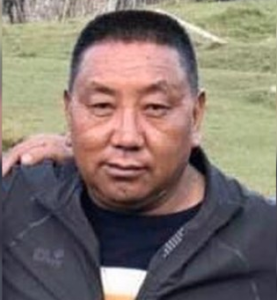 Tsering Bagdro, 51, a former Tibetan political prisoner, passed away on April 26 at his home in Maldro Gongkar county near Lhasa – the capital city of Tibet, reports Radio Free Asia (RFA)’s Tibetan service. His passing came after years of ill health. It is reported that his poor health was due to the torture he underwent during his eight-year prison term.
Tsering Bagdro, 51, a former Tibetan political prisoner, passed away on April 26 at his home in Maldro Gongkar county near Lhasa – the capital city of Tibet, reports Radio Free Asia (RFA)’s Tibetan service. His passing came after years of ill health. It is reported that his poor health was due to the torture he underwent during his eight-year prison term.
Bagdro was a former monk at Gandan monastery in Lhasa and was arrested by the Chinese authorities on June 10, 1992 for staging a demonstration in Lhasa with other Tibetans; they were calling for Tibet’s independence and carrying Tibet’s flag which is banned by Chinese government. Bagdro and his fellow Tibetans were arrested on the spot and taken to Gutsa detention centre in Lhasa.
RFA reports sources as saying that the Lhasa People’s Intermediate Court sentenced Bagdro for an eight-year prison term, followed by further deprivation of political rights for two years. Bagdro was transferred to Drapchi prison in November 1992. Drapchi prison is known for torture and brutality in its treatment of prisoners.
“During his time in prison, he experienced physical torture and psychological trauma like the other political prisoners held there, and he was finally released in June 2000 after serving his full term,” reports RFA, quoting their source.
Following his release on June 9, 2000, Bagdro, like other political prisoners, lived under surveillance until his death.
A former political prisoner who now lives in exile has said that Bagdro was considered the leader of the demonstration and was given a longer prison sentence than the group of Tibetans arrested with him, reports the International Campaign for Tibet – a non-profit advocacy group working to promote democratic freedom for Tibetans.




 Print
Print Email
Email